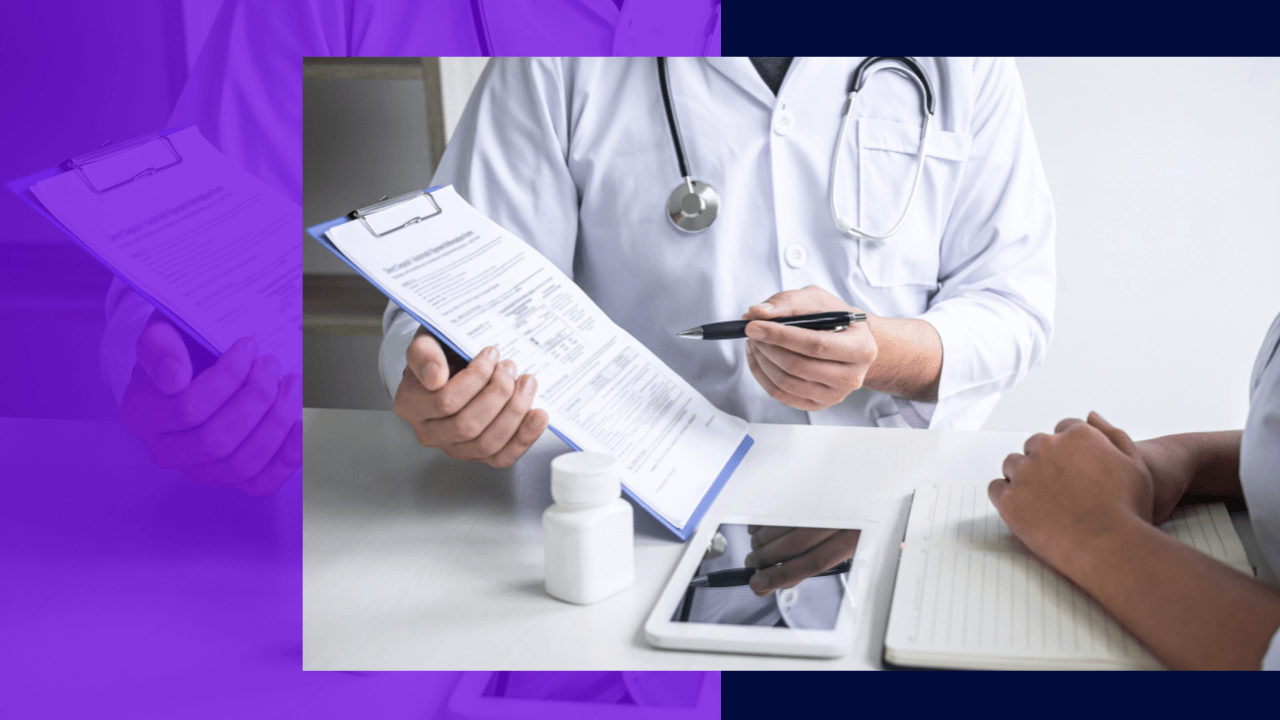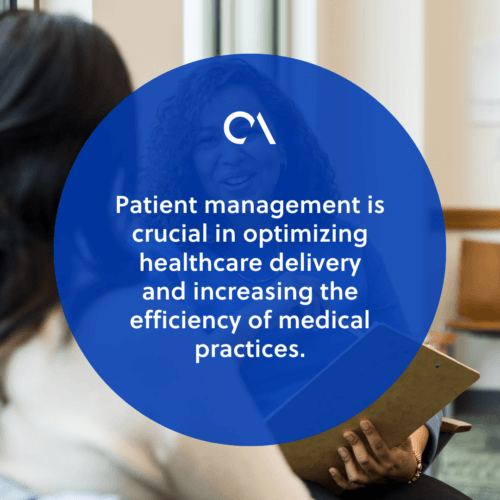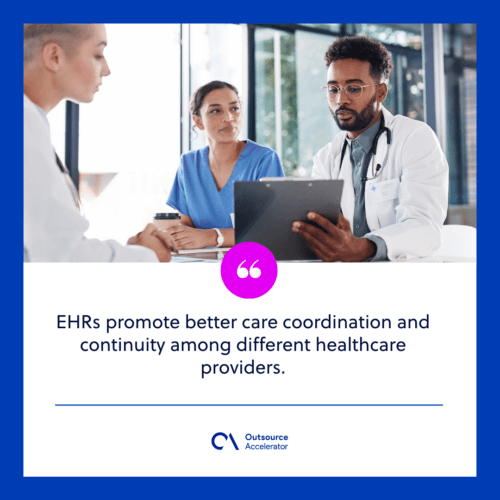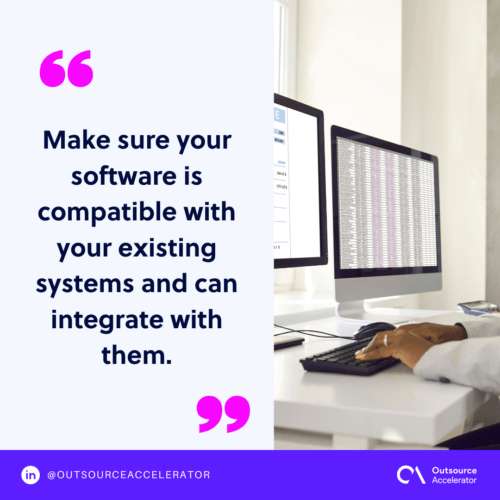Improving healthcare experience using patient management software

Patient management software has emerged as a game-changer in the medical industry, as it strengthens the bond between healthcare providers and patients.
This software is a centralized platform for patient information, scheduling appointments, and facilitating secure communication. Its impact goes far beyond traditional healthcare practices’ boundaries.
The tool empowers healthcare professionals to deliver personalized care while allowing patients to participate in managing their health journey.
In recent years, patient management software adoption has seen a substantial rise. According to reports, the global patient management system market reached a staggering value of US$12.4 billion in 2022, with a compound annual growth rate (CAGR) of 9.72% by 2030.
This growth is attributed to the industry’s increasing need to improve patient outcomes and drive operational efficiency.
There’s no single solution for all medical practices. However, there can be a system fit for their team’s needs and preferences.
This article will explore the multifaceted advantages of patient management software for healthcare professionals and patients.
What is patient management?
Patient management refers to the comprehensive health assistance medical providers give their patients. It involves coordinating and organizing healthcare services, from appointment setting and initial checkups to continuous care.
Primarily, patient management covers administrative tasks, maintaining medical records, and facilitating communication between healthcare professionals and patients.
Patient management is crucial in optimizing healthcare delivery and increasing the efficiency of medical practices.

How patient management software improves healthcare experience
Patient management goes far beyond maintaining a good relationship with patients in terms of quick service. It also involves providing the best patient care possible by identifying their conditions and acting on them appropriately.
Patient management software makes this possible by providing healthcare professionals and patients with the following benefits:
Healthcare professionals
For medical experts, patient management software provides:
Enhanced administrative efficiency
Patient management software automates administrative tasks such as appointment setting, billing, and claims processing.
This efficiency allows healthcare professionals to focus more on patient care and less on paperwork, ultimately improving the overall quality of care.
Centralized patient records
A comprehensive patient management system allows healthcare professionals to access patient records, medical history, and treatment plans in one centralized location.
This accessibility ensures that accurate and up-to-date information is available at the point of care, leading to better decision-making and personalized treatment options.
Improved communication and collaboration
Patient management software facilitates smooth communication and collaboration among healthcare teams.
It allows different professionals involved in a patient’s care to share information, discuss treatment plans, and provide coordinated care.
Patients
In using patient management software, patients are able to take advantage of:
Records accessibility
Patient management software empowers patients by offering convenient access to their medical records, test results, and treatment plans.
Through the system, patients are allowed to schedule their checkups, request prescription refills, and communicate with their healthcare providers. It also lets them access telehealth services for their convenience.
These features lead to a more patient-centered experience.
Timely reminders and notifications
Patients can manage their healthcare needs in a timely manner with a good patient management system.
The software can send automated reminders for upcoming appointments, medication schedules, and preventive screenings to reduce the risk of missed appointments.
Personalized engagement
Patient management software allows healthcare providers to tailor treatment plans accordingly. This fosters patient engagement and satisfaction as they feel more involved in their care journey.
Remote staffing providers like Offshore MVP use advanced patient management software to streamline workflows, improve communication, and enhance the patient experience.
Key elements of a patient management software
A comprehensive patient management software typically includes the following essential elements:
Electronic health records (EHR)
EHRs are digital versions of patient medical records, providing a comprehensive overview of the patient’s health history, diagnoses, medications, and allergies.
EHRs promote better care coordination and continuity among different healthcare providers.

Appointment and scheduling system
The software should offer an efficient appointment and scheduling system. Here, practitioners can manage their calendars and set availability, while patients can book appointments online.
Billing and insurance management
Effective patient management software streamlines the billing and revenue cycle management process.
This gives users easy invoicing and insurance claim submissions, reducing administrative burden and ensuring accurate financial transactions.
Secure communication platform
A secure messaging system allows secure communication between healthcare providers and patients, ensuring that sensitive medical information is transmitted safely.
At the same time, it has a support channel to report any issues they encounter with the system.
Reporting and analytics
The software should include robust reporting capabilities that provide insights into patient demographics, clinic performance, and treatment outcomes.
5 patient management software to try
Numerous patient management software options are available in the market, each with their unique features and benefits.
We have listed some of the reliable systems used by practitioners and institutions to date:
1. Simple Practice
Simple Practice is a highly-acclaimed patient management software perfect for solo practitioners and small healthcare practices.
The tool offers an all-in cloud-based management system. Its user-friendly interface and comprehensive features make it an excellent choice for those seeking a seamless and efficient solution.
Simple Practice provides integrated features to streamline administrative tasks, schedule appointments, and manage billing. It offers HIPAA-compliant telehealth services for virtual consultations, expanding its reach to patients beyond geographical limitations.
Moreover, the tool allows patients to manage everything through web and mobile apps. With a single click, they can manage their records and delegate insurance providers supported by their doctors.
2. NextGen Healthcare
NextGen Healthcare is an award-winning patient management software that caters to medical practices of all sizes.
It offers an all-in-one solution that combines Electronic Health Records (EHR), practice management, and patient engagement features.
NextGen Healthcare’s EHR system provides a centralized platform where practitioners and patients can securely access medical records. Its practice management capabilities streamline administrative tasks such as appointment scheduling and billing.
The patient engagement features empower patients to participate in their healthcare journey actively. It allows them to update their information, add their insurance, and connect with their doctors through telehealth services.
NextGen Healthcare’s scalable and customizable nature makes it an excellent choice for growing practices that seek an integrated and future-proof solution.
3. Athenahealth
Athenahealth is a cloud-based patient management software that offers a comprehensive suite of practice administration services. It intends to elevate overall healthcare performance through IT solutions for medical practices.
Athenahealth provides a holistic approach to patient care, from maintaining patient health records to revenue cycle management and patient engagement.
The software’s billing and insurance management capabilities ensure accurate invoicing and smooth claim submissions. This reduces administrative burdens for medical practices and freedom for patients to choose their payment options.
One of Athenahealth’s highlight features includes population health management. This allows providers to analyze patient data, identify trends, and implement proactive healthcare strategies with their medical team.
The software’s secure communication platform enables them to communicate securely with patients through effective telehealth consultations and support. This, in turn, improves patient engagement.Athenehealth is committed to data security and compliance with industry standards. This makes it a reliable and trusted choice for healthcare practices seeking a secure and efficient patient management solution.
4. DocPulse
DocPulse is known for its intuitive interface and easy-to-use features, making it an ideal patient management software for smaller medical practices.
Despite its simplicity, DocPulse does not compromise functionality and optimization. Its EHR system ensures practitioners can maintain digital patient records and access crucial medical information at the point of care.
DocPulse’s appointment and scheduling system allow providers to manage their calendars while patients can book appointments online.
One of the software’s primary selling points lies in its price. Its affordability and straightforward pricing structure make it accessible to healthcare practices with limited budgets.
DocPulse’s commitment to delivering an effective and user-friendly experience has earned it a loyal user base among healthcare providers looking for a no-frills patient management solution.
5. LeadSquared
LeadSquared stands out with its integrated patient management and customer relationship management (CRM) system. This tool is an excellent choice for healthcare practices focusing on patient acquisition and retention.
Its seamless patient data integration allows healthcare professionals to provide personalized care and better understand patient needs.
LeadSquared’s EHR system centralizes patient records, enabling providers to access vital medical information and treatment history. The CRM aspect of the software helps build and nurture strong patient relationships through personalized patient care.
Its combined features ensure a positive healthcare experience from initial contact to post-treatment follow-ups.
Moreover, LeadSquared’s focus on driving patient engagement and loyalty has made it a preferred choice for healthcare organizations aiming to enhance patient satisfaction and loyalty.
Choosing the right patient management software for your practice
Selecting the most suitable patient management software is a critical decision that can significantly impact your practice’s efficiency and patient experience.
Consider the following factors during the decision-making process:
- Compatibility. At times, you might have used other tools to manage patient records. Make sure your software is compatible with your existing systems and can integrate with them.

- Interface. Look for a platform with an intuitive interface that is easy for both your staff and patients to navigate.
- Scalability. Choose a patient management software that can grow with your practice and accommodate a growing number of patients and providers.
- Data security and compliance. Prioritize software adhering to data security and patient privacy standards, such as HIPAA compliance.
- Customer support. Opt for a tool that offers reliable customer support and training to help your team get the most out of the software.
Selecting the right patient management software can improve patient care, streamline workflows, and increase practice profitability.







 Independent
Independent




